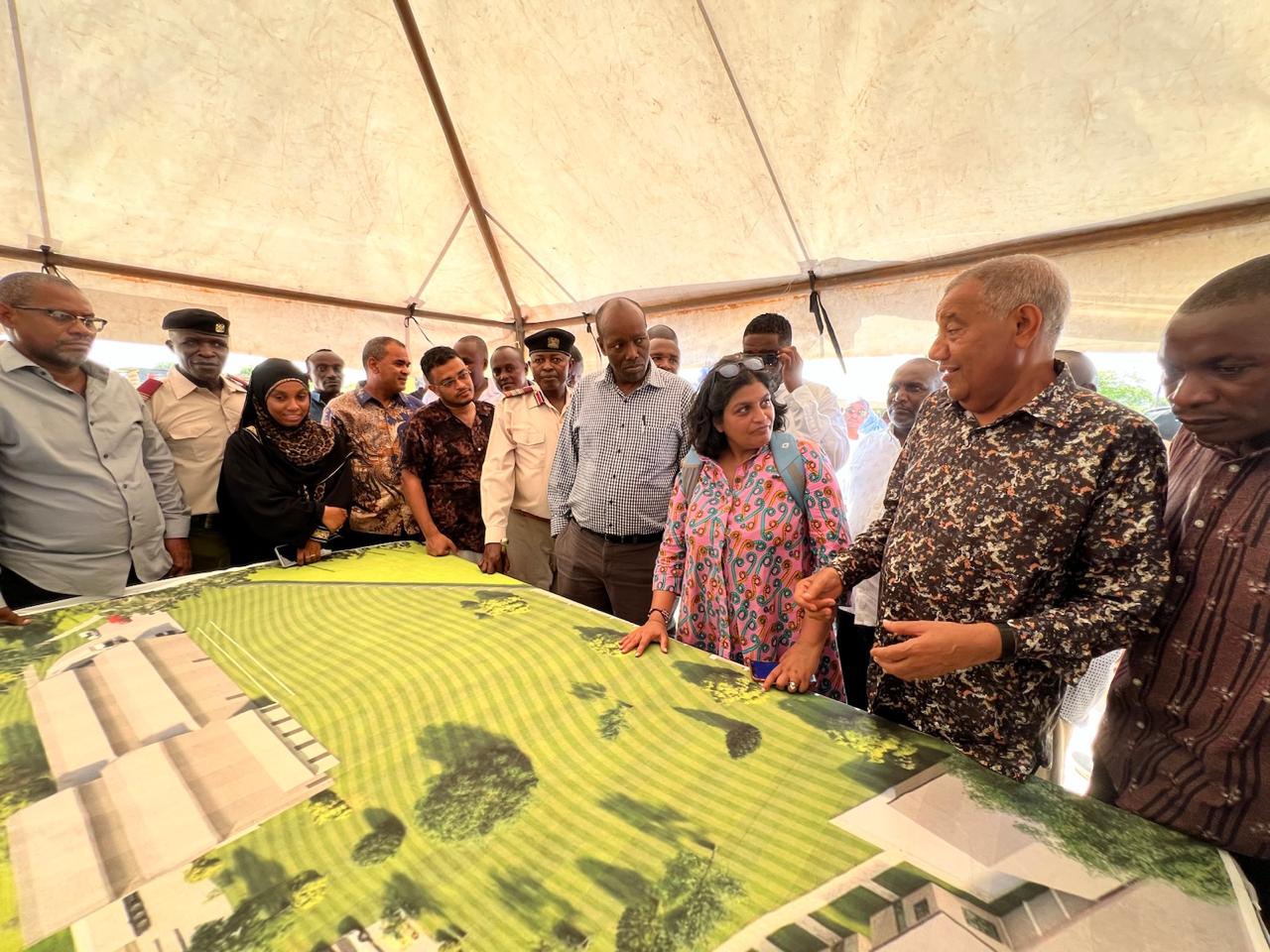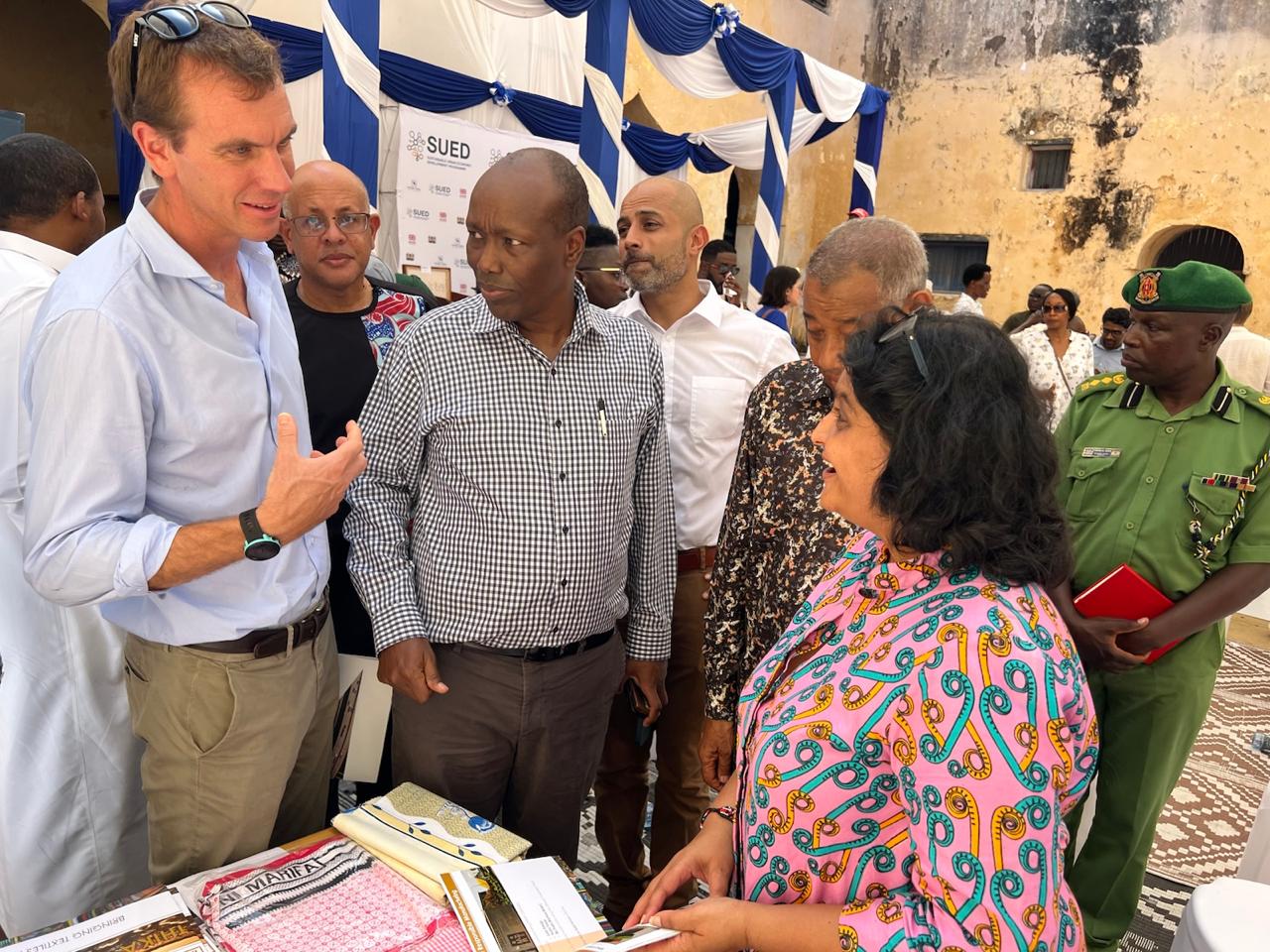

The governments of the United Kingdom and Kenya, in partnership with Lamu
County and the private sector, have broken ground on a new cotton processing
facility in Lamu County, a move expected to create up to 5,000 jobs and
stimulate economic growth in the region.
Construction of the facility, led by Thika Cloth Mills, will begin
immediately and is projected to be completed by November 2025.
The ginnery is set to triple cotton production in Lamu from the current
2,000 bales to 6,000 annually within the next three years, significantly
bolstering the country’s efforts to develop a homegrown textile industry.
“The ginnery will boost cotton uptake and thus earn farmers more income,
create jobs, and provide raw material for the textile industry,” said Lee
Kinyanjui, Cabinet Secretary for the Ministry of Investments, Trade and
Industry.
“With the infrastructure
supporting export, including a special economic zone, Lamu Port, and
LAPSSET, Lamu will be the hub for investors in the region.”

British Deputy High Commissioner to Kenya, Ed Barnett, hailed the
initiative as a model for effective partnerships.
“This project is a testament to
the power of partnerships,” Barnett said. “The UK, national government, and
county governments have joined forces with the private sector to deliver 5,000
jobs and future economic growth.”
He added that the facility will not only reduce Kenya’s dependence on
cotton imports—currently accounting for over 90% of local consumption—but also
improve livelihoods.
“This partnership will reduce reliance on imports, put money in the
pockets of farmers, and support a sustainable, homegrown cotton industry in
Kenya. Long live Kenya kanga!”
The facility will serve farmers in Lamu and neighbouring counties,
including Kilifi, Tana River, Kwale, and Taita Taveta.
By locating the plant near farms, transportation costs will be reduced
and environmental benefits realised—specifically, a projected annual reduction
of 262 metric tons of carbon dioxide emissions.
Notably, the project aims to promote gender equality, with women expected
to comprise at least 50% of the workforce at the processing plant. “This
project is not just economic—it’s also deeply social, and we’re proud to
support initiatives that empower women,” Barnett said.

The cotton ginnery is part of the UK-funded Sustainable Urban Economic
Development (SUED) programme, which seeks to add value to Kenyan agricultural
produce before export.
The UK government provided seed funding to de-risk the investment, with
further financial backing from the Government of Kenya and Thika Cloth Mills.
Lamu County facilitated the project by providing the land.
“This four-way partnership shows how the UK and Kenya are delivering
tangible economic results,” Barnett said. “It’s about long-term growth, job
creation, and reducing inequality.”
SUED has operated in Lamu for four years and this project marks its
fourth value-chain investment in the county, following facilities for fish,
coconut, and cashew nut processing. Nationally, SUED’s £8 million seed funding
has unlocked £48 million in private capital and created over 10,000 jobs.
The UK also partners with Kenya in Lamu across multiple sectors,
including infrastructure development, regional security, and environmental
protection, demonstrating a long-term commitment to Kenya’s growth and
sustainability.












